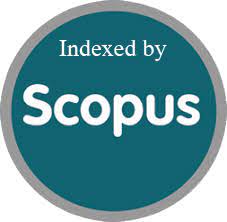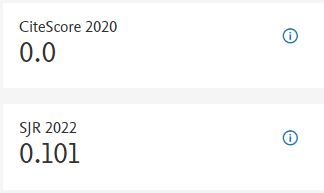Analysis of Gig Economy's Impact on Contemporary HR Practices in the Professional World
DOI:
https://doi.org/10.7492/172g5h67Abstract
The gig economy has ushered in a paradigm shift in the world of work, significantly impacting contemporary HR practices in the professional sphere. This abstract delves into the multifaceted analysis of how the gig economy has reshaped human resource management strategies, focusing on talent acquisition, policies, workforce planning, and organizational culture.the gig economy has revolutionized talent acquisition. Organizations increasingly rely on freelancers and independent contractors, diversifying their talent pool. HR departments are tasked with adopting innovative approaches to identifying and attracting gig workers who possess specialized skills. This shift towards a more dynamic workforce necessitates the development of efficient onboarding processes and flexible recruitment strategies.HR policies and benefits have evolved in response to the gig economy. Traditional employment models with comprehensive benefits packages have been reconsidered. HR professionals must now design more adaptable compensation and benefits structures that cater to the unique needs of gig workers, balancing cost-effectiveness with the need to retain top talent.the gig economy has accentuated the need for fostering an inclusive organizational culture. Integrating gig workers into the fabric of the company is vital for building a sense of belonging and loyalty among all employees. HR plays a pivotal role in creating an environment where diversity of employment arrangements is celebrated and where every worker feels valued.
References
Grant, A. M. (2013). Give and take: Why helping others drives our success. Viking Press.
Greenhaus, J. H., & Allen, T. D. (2011). Work–family balance: A review and extension of the literature. In Handbook of occupational health psychology (pp. 165-183). American Psychological Association.
Hall, J. V., & Krueger, A. B. (2018). An analysis of the labour market for Uber’s driver-partners in the United States. ILR Review, 71(3), 705-732.
Handy, C. (1995). Trust and the virtual organization. Harvard Business Review, 73(3), 40-50.
Heifetz, R., & Laurie, D. L. (2001). The work of leadership. Harvard Business Review, 79(11), 131-141.
Hochschild, A. R. (2012). The managed heart: Commercialization of human feeling. University of California Press.
Ibarra, H. (2015). Act like a leader, think like a leader. Harvard Business Review Press.
Johnston, H., & Land-Kazlauskas, C. (2018). Organizing on-demand: Representation, voice, and collective bargaining in the gig economy. International Labour Office.
Kalleberg, A. L. (2011). Good jobs, bad jobs: The rise of polarized and precarious employment systems in the United States, 1970s-2000s. Russell Sage Foundation.
Katz, L. F., & Krueger, A. B. (2019). The rise and nature of alternative work arrangements in the United States, 1995-2015. ILR Review, 72(2), 382-416.
Lalé, E. (2019). The evolution of multiple job holding in the U.S. labour market: The complete picture. Journal of Money, Credit and Banking, 51(5), 1271-1307.
Lepak, D. P., & Snell, S. A. (1999). The human resource architecture: Toward a theory of human capital allocation and development. Academy of Management Review, 24(1), 31-48.
Mitroff, I. I. (2005). Why some companies emerge stronger and better from a crisis: 7 essential lessons for surviving disaster. AMACOM Div American Mgmt Assn.
Parker, G., Van Alstyne, M., &Choudary, S. P. (2016). Platform revolution: How networked markets are transforming the economy and how to make them work for you. WW Norton & Company
Paul, K. I., & Moser, K. (2009). Unemployment impairs mental health: Meta-analyses. Journal of Vocational Behavior, 74(3), 264-282.
Peters, T. (1997). The brand called you. Fast Company, 10(31), 83-90.
Quinlan, M., Bohle, P., &Lamm, F. (2010). Managing occupational health and safety: A multidisciplinary approach (3rd ed.). Macmillan International Higher Education.
Rogers, B. (2016). Employment rights in the platform economy: Getting back to basics. Harvard Law & Policy Review, 10, 479.
Standing, G. (2016). The corruption of capitalism: Why rentiers thrive, and work does not pay. Biteback Publishing.
Stone, K. V. W. (2004). From widgets to digits: Employment regulation for the changing workplace. Cambridge University Press.
Sundararajan, A. (2016). The sharing economy: The end of employment and the rise of crowd-based capitalism. MIT Press.
Treviño, L. K., Weaver, G. R., & Reynolds, S. J. (2006). Behavioural ethics in organizations: A review. Journal of Management, 32(6), 951-990.
Uhl-Bien, M., Marion, R., &McKelvey, B. (2007). Complexity leadership theory: Shifting leadership from the industrial age to the knowledge era. The Leadership Quarterly, 18(4), 298-318.
Virtanen, M., Kivimäki, M., Joensuu, M., Virtanen, P., Elovainio, M., &Vahtera, J. (2005). Temporary employment and health: A review. International Journal of Epidemiology, 34(3), 610-622.

















